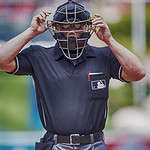DFA stands for “Designated for Assignment” and is a term used in baseball when a team removes a player from their 40-man roster. This move is typically made when a team needs to make room for a new player on their roster and needs to clear space. When a player is designated for assignment, he is removed from the team’s active roster, and the team has ten days to either trade, release, or outright the player to the minor leagues.
The DFA process can be a difficult time for players, as they are essentially in limbo until their future is decided. Being designated for assignment means that a player is no longer on the team’s active roster and cannot participate in games or practices with the team. This can be a stressful and uncertain time for players, as they may be unsure of their future in the league. However, being designated for assignment does not necessarily mean the end of a player’s career, as they may be picked up by another team or assigned to a minor league team within their current organization.

What is DFA in Baseball?
Definition
DFA stands for “Designated for Assignment” and is a term used in Major League Baseball (MLB) to describe the process of removing a player from a team’s 40-man roster. When a player is designated for assignment, they are essentially in limbo, as the team has seven days to either trade, release, or outright the player to the minors.
Waivers
Before a player can be traded, released, or outrighted to the minors, they must first clear waivers. This means that other teams have the opportunity to claim the player and assume their contract. If a player is claimed, the team that designated them for assignment can either work out a trade with the claiming team or simply let the player go to the claiming team.
If a player is claimed off waivers, their new team assumes their contract and the old team is relieved of their salary obligations. If a player clears waivers, they can be outrighted to the minors. If the player has not yet been outrighted in their career, they must give their consent to be outrighted. If they refuse, they become a free agent.
Outright Assignment
If a player clears waivers, the team can outright them to the minors. This means that the player is removed from the 40-man roster and sent to the minor league system. The player can be outrighted with or without their consent, depending on their contractual terms. If a player has more than three years of major league service time or has been outrighted before, they have the right to refuse the assignment and become a free agent.
Waivers
In baseball, a player who is designated for assignment (DFA) is temporarily removed from the 40-man roster and placed on waivers. This means that the player is available for any other team to claim within a certain period of time, usually seven days. During this time, the player’s current team can either trade the player to another team, release the player, or outright the player to the minor leagues.
If a player is claimed off waivers, the claiming team takes on the player’s contract and must add the player to their 40-man roster. If multiple teams claim the player, the team with the worst record in the player’s league has priority. If no team claims the player, the player can be outrighted to the minor leagues or released.

When a player is outrighted to the minor leagues, they are removed from the 40-man roster and placed on the minor league roster. However, the player remains under contract with their current team and can be called back up to the major league team at any time. If a player has already been outrighted once before, they can refuse the outright assignment and become a free agent.
Waivers are an important part of roster management in baseball. They allow teams to make room on their 40-man roster for new acquisitions and to manage their minor league system. However, they can also leave players in limbo and create uncertainty for both players and teams. It is important for teams to carefully consider the impact of placing a player on waivers and to understand the rules and regulations surrounding the waiver process.
- Fenway Park Seating Chart: Best Seats To See the Red Sox - July 17, 2023
- What is RBI in Baseball: A Simple Explanation of The “Ribby” - July 3, 2023
- What is DFA in Baseball? A Term No Player Wants to Hear - July 3, 2023








